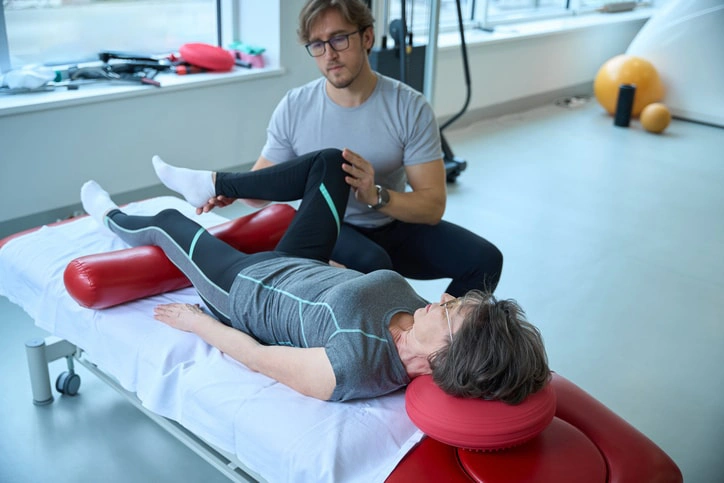There are several types of treatment for ADHD, and although often overlooked, occupational therapy offers powerful solutions for managing ADHD symptoms. It can be highly effective, with significant, long-lasting, and wide-ranging benefits.
In this article, we’ll explore how occupational therapy can be a life-changing treatment option to complement other ADHD therapies, making a real difference in the lives of both children and adults.
Understanding ADHD
Attention Deficit Hyperactivity Disorder (ADHD) is a neurodevelopmental disorder characterised by patterns of inattention, hyperactivity, and impulsivity. ADHD can affect everyday life for adults and kids who have ADHD, including their relationships, finances, and performance at work and school.
Occupational therapists work with people with ADHD to develop practical strategies for managing symptoms and improving daily functioning.

Benefits of Occupational Therapy for ADHD
Occupational therapy focusses on practical solutions and coping strategies to overcome specific challenges in everyday activities. If you have ADHD, occupational therapy can help you improve your ability to perform everyday tasks, manage relationships, thrive at work or school and participate in activities you enjoy.
For example, occupational therapy can help with developing strategies for managing stress and anxiety, time management and improving self-regulation skills, including self-monitoring and self-control.
Occupational therapy can also help people with ADHD develop better organisational and planning strategies and skills.

Occupational therapy for children with ADHD
Children with ADHD can benefit enormously from occupational therapy, as they begin to develop their skills and tools for living with ADHD.
A paediatric occupational therapist will help kids with ADHD to learn about how their ADHD brain works and find techniques that help manage their particular symptoms and challenges in positive way that builds the foundations for success.
This can help with areas including time management, focus, social skills and daily tasks at home and in the classroom.
Often, kids with ADHD find the demands of school challenging, so occupational therapists will often focus on strategies and aids that can help in the school environment. Occupational therapists can also work collaboratively with the school to find appropriate strategies for dealing with these challenges.
Occupational therapy for adults with ADHD
Having ADHD can make the demands of adult life all the more difficult. Depending on the type of ADHD you have, it can present challenges remembering information, being on time, managing relationships or meeting work or university requirements and deadlines.
Occupational therapy’s broad and holistic approach means it can address all of these challenges and more.
Occupational therapists can help adults develop and implement solutions to deal with more practical issues like organisation and time management, which may include technological solutions.
Occupational therapy also works well for mental health, so issues like sensory processing, anxiety, sleep, focus, retaining information, emotional regulation and impulse control can all be improved greatly by seeing an occupational therapist who specialises in mental health.
Ways Occupational Therapy Can Help With ADHD Challenges
Developing Self-Regulation Skills
People who have ADHD often find it difficult to regulate their feelings and behaviours. Occupational therapists use a variety of techniques to help individuals with ADHD develop self-regulation skills, including deep breathing, visualisation, and physical activity.
Occupational therapy can provide strategies to help with
Stress management
Social interaction
Techniques to reduce distractions and improve focus
Emotional regulation
Impulse control
Overwhelm and anxiety.
Occupational therapists will also help you to recognise the situations when self-regulation is going to be the most challenging, so you can either reduce the demands on yourself, or put your strategies in place early. This can be as simple as remembering to eat an extra snack during a demanding work day or it could be putting structures in place for a child to manage their first school camp.

Creating a Sensory-Friendly Environment
Research shows that around 40% of children with ADHD also have Sensory Processing Disorder (SPD), a condition that affects the way the brain processes sensory information from the environment.
Creating a sensory-friendly environment can help people with ADHD and SPD feel more comfortable and in control.
This can include addressing sensory processing problems by:
using natural light
reducing noise levels (or providing a quiet area)
providing a variety of textures and colors
having clothing appropriate for your sensory needs, such as seamless socks
doing heavy work activities
using fidget toys or a ‘wobble’ cushion.
Occupational therapists can work with people who have ADHD and SPD to identify their sensory needs and develop strategies for meeting those needs.
A sensory diet can be developed to provide the right amount and type of sensory input to help individuals with ADHD and SPD regulate their sensory processing.
Occupational therapists may also use sensory integration techniques to help individuals with ADHD regulate their sensory processing and respond to sensory information.

Occupational therapists can help to develop strategies for improving time-management, organisational systems and planning skills and techniques for people with ADHD.
This can include using visual aids, such as charts and checklists, or technology, such as apps and reminders, to help people with ADHD stay organised and on track.
Breaking tasks into smaller, more manageable steps can also help individuals with ADHD manage overwhelm and develop a sense of control and confidence.
Occupational therapists can also help with maintaining motivation, which can be challenging for people with ADHD.

Leveraging Assistive Technology
Assistive technology can be a powerful tool for people with ADHD to stay organised, focused, and on track. It can incorporate planners and organisers, time management apps and wearable technology.
Occupational therapists can help to identify the right assistive technology and develop strategies for using it effectively.
This can include using text-to-speech software, speech-to-text software, and other tools to help with writing and communication.
Occupational therapists may also use virtual reality and other technologies to help individuals with ADHD develop skills and practice strategies in a safe and controlled environment.
Assistive technology works best when it can be incorporated seamlessly into your daily routine, and this is where occupational therapists are particularly helpful.
Finding the Right Occupational Therapist for ADHD
Finding the right occupational therapist can be an important part of developing a treatment plan for ADHD.
Occupational therapists who specialise in working with individuals with ADHD may have additional training and experience in this area.
It’s essential to find an occupational therapist who is a good fit for your needs and goals, and who can provide the right level of support and guidance, so make sure you ask some questions about an occupational therapist’s experience with ADHD before you go ahead and book in.
How can we help?
Goal Coach has experienced occupational therapists who specialise in helping neurodivergent people to overcome their everyday challenges and build the life they want – and no waiting list! If you’d like to get started with our online occupational therapy, or just want to see if it’s right for you, book in for a free 15-minute chat with one of our team members.










